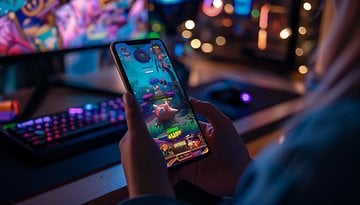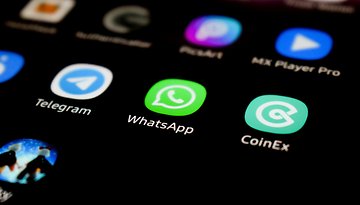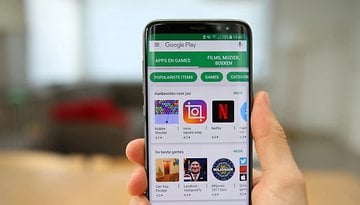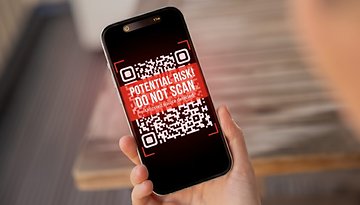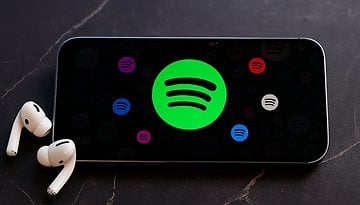How Can Smartphones be Digital Bridges for the Homeless
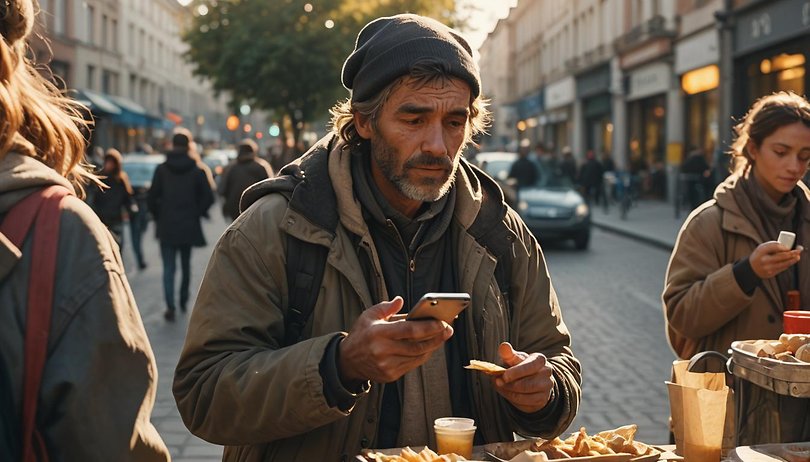

Read in other languages:
How do homeless people actually perceive our digitalized world and how can they participate in it? Today, let's talk about what are the available options to enable these people to participate more. Specifically, I would like to tell you more about the digital currency Karuni and how, together with the Mokli app, it can help those affected to lead a better life on the street.
Last week, the Christmas market opened here in my hometown, Dortmund. People were jostling around in the city center, rummaging for presents and socializing at mulled wine stands. Many people among them probably don't feel particularly Christmassy. I'm referring to those who do not have their own home or who live entirely on the streets.
The German working group Home Aid estimated that there were more than 600,000 homeless people in Germany at the end of 2023, over 50,000 of whom were living exclusively on the streets. It is to be feared that this number may have even increased since then. Personally, I also notice more people sleeping on the street and begging for a change.
This becomes even more stark during winter and in view of Christmas, their fate always stabs at my heart and I try to help them with small change as often as I can. Most of the time, however, I don't carry any with me at all because I make most of my payments via card or smartphone. This article explores how digital homeless people are these days and how we can let them participate in our largely digital lives.
Just How Digital are Homeless People?
As you can imagine, when it comes to homelessness, there are never really any figures that are 100% valid. However, based on a study from 2022, three out of five homeless people in Berlin alone have their own smartphone. I have to admit that I never really thought about it, but it makes sense.
After all, we live in times when we do a lot of things digitally—from submitting applications to managing tickets and even paying. Incidentally, there is a huge fluctuation in both devices and smartphone numbers. This means that even homeless people are usually online, but in many cases, they often have new numbers, and their old contacts, photos, videos, etc. fall through the cracks.
Smartphones are also used among people on the street to organize their day or to keep in touch with people. But above all, it is to pass time. People also play games but consume even more video content.
Karuni and Mokli: Digital Participation Examples in Germany
When we know that a large proportion of homeless people own a smartphone, it is obvious that we should make life easier for them in this regard. Our friends from the podcast überMORGEN recently talked about a German project (the episode will be aired online soon) that focuses on digital participation. The focus is on homeless people, especially the younger ones.
KARUNA eG in Berlin is a solidarity-based social cooperative, but increasingly sees itself more as a project laboratory. In this capacity, it initially developed a "help finder" app called Mokli with technical assistance from the company Ubilabs and later linked it to the concept of a digital currency for homeless people called Karuni. This cryptocurrency makes it possible to use funds both transparently and in a targeted manner without necessarily having to rely on cash.
This project by the start-up, which is made up of former street children, is already in the pilot phase in Berlin and aims to give homeless people more independence and make it easier for them to participate in social life. Google thought the ideas were really good and twice rewarded the team with the Google Impact Challenge.
Bed, food, money
What has been achieved thus far? Thanks to the Mokli app, children and young people living on the streets can now find answers to two very important questions: "Where can I find a bed today and where can I get something to eat?" The integration of a wallet function into the app and the establishment of a digital currency means that there are contract pharmacies and cafés in Berlin as part of the pilot project, where homeless people can also obtain medicines or a cup of coffee without cash.
There is also an SOS button in the app if a person needs immediate help—also in the form of a call. And of course, available doctors are also displayed in the app. Incidentally, the app is currently available in four languages and can be used in German, English, Polish, and Arabic.
That's just for starters, in my opinion. This is especially so when I can buy and drink a cup of coffee somewhere, it allows me to participate in a completely different manner. I simply sit in a store with people who don't share my fate. People are less excluded and that is one of the huge problems that homeless people otherwise have to live with: social isolation.
You can donate money via the betterplace.org platform, which will then benefit homeless people as part of the project. However, the next step must be that everyone can use this app—and that I can then use the app to send a few euros to a homeless person's wallet without cash the next time I meet them.
What other Opportunities and Solutions are There?
The small catch at this point is that there is no such thing as a globally functioning "PayPal" or similar for homeless people. Hence, the project presented above is of no use to anyone who is reading this article from the USA, France, Brazil, or anywhere else, or who needs help. But that doesn't change the fact that the idea is a fantastic one at its core and that increased inclusion of all conceivable people is something worth striving for.
I think I will dive into the topic further, but I would like to think a little more about what I would like to see. I would also appreciate your help in this regard, as perhaps you already know of such projects and can share them with me in the comments.
During my research, I stumbled across StreetLife—a Dutch app that offers help for the homeless in a similar way to Mokli, but is limited to Amsterdam. Whether you need clothes, a doctor, psychological help, or just company, this app can help. StreetLink, on the other hand, offers to find places to sleep. The cool thing is that not only those who urgently need a place to sleep can get in touch but also those who find a homeless person who urgently deserves a bed.
As I mentioned, let me know if you know of any other examples. In the meantime, I can think of so many other things that we could do digitally to help the homeless experience participation. It begins with the technology itself: where is there free WiFi, for example? Germany, in particular, is poorly positioned in this respect, but this is where the authorities and telecommunications providers are called to task. Where does a homeless person even get a smartphone? Maybe it should even be tech editors like nextpit who refurbish old devices by making them available to the homeless.
There is also so much more I can imagine that should be feasible in a digitalized, prosperous country and hopefully a lot of empathy—as I see Germany: Job exchanges that provide easy access to work, uncomplicated document storage on smartphones or in secure clouds, or even digital offers for further training. However, I also see a need in the area of telemedicine, regardless of whether the person is homeless.
Okay, okay, I realize this. After I actually only wanted to sensitize you to this topic, I'm now getting lost in ideas and unstructured brainstorming. That's probably because we're all nerds here who can think of so many things that could be done if only we could finally tap into the potential of digitalization.
I would be delighted if you could join in the brainstorming session. Do let me know what ideas you have in mind, what services you already know about, or even the directions we could think beyond homelessness when it comes to digital participation.
Oh, and one last thing: regardless of the technical possibilities, these people deserve to be seen and respected. The next time you're whizzing through the city, give them some change or buy them a snack. Spare a minute and talk to them. They often don't have many people who listen to them and notice them, so five minutes of small talk may sometimes be more valuable than a cash donation.






